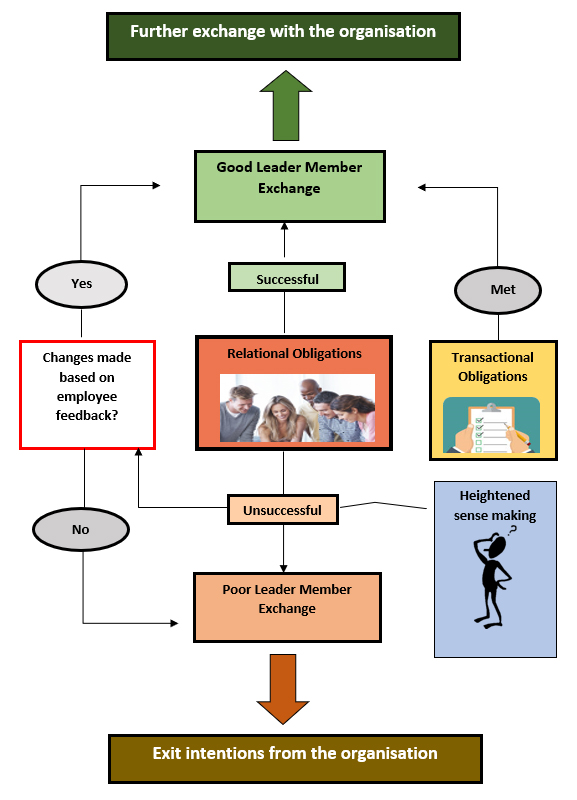I still find attending the Accelerator training days the most exciting part of my training with TCA as they help bridge the gap I have with my current reality and the kind of Coach I want to be and the success I want to have with my Coaching Practice. A common theme I have found within my training so far is how important stakeholder management is to help clients have a successful business themselves.
Personally, I have had to review my key stakeholders and the impacts they have on me and how my business will grow now and in the future. This exercise has led me to revisit the qualitative research I have previously carried out on psychological contract breach and violation within the workplace and how coaching is one of the key practices for leaders to mitigate the negative effects their employee’s experience, so a positive psychological contract can be reformulated and both parties can move on to working more successfully.
So, what is a psychological contract and how can it be breached or violated within the workplace?
A psychological contract is a set of beliefs, values and expectations that employees have concerning the relationship with their employer (Middlemiss, 2011).
As such they are abstract in nature and unique to everyone. The psychological contract can be breached when relational obligations are not effectively carried out such as weekly coaching and monthly 1 to 1’s. Instances of breach can also happen when there is a poor employee engagement strategy in place and lack of high-performance work practices across the business. When such instances regularly happen, they can lead to the psychological contract being violated and at times great employees can leave the organisation. The below diagram illustrates the different paths the psychological contract can take depending on whether it is greatly or poorly managed within workplace.

So, which coaching principles, competencies and skills can turn the situation around?
As you can see within the diagram the research found a feedback loop between the employee and their leader which is highlighted in red. This implies there is a big opportunity for leaders to make some great changes if they find from their employees that psychological contract breach or violation has occurred. Here are some things to consider:
• Coaching sessions are an opportunity for leaders to show how much they value the contribution and performance of their employees. It is very important to provide positive evidence-based feedback during a coaching session and even from the sessions before. You owe it to those who you are leading to celebrate their success and help them uncover their strengths and resourceful selves before you go into solution mode and explore what improvements can be put into place.
• Coaching sessions thrive when leaders go back to the basics. It is so important for a leader to build rapport, show they are actively listening, help the employee uncover their needs alongside the business needs, foster trust, honesty and maintain a non-judgemental attitude so the employee can grow and enhance their performance.
To end with a quote by Becky Brodin:
“Leadership is not wielding authority - it is empowering people.”

The Coaching Academy was established in 1999, and is now the world's largest coaching school.
In that time we have trained over 14,000 people to become life coaches.
We are accredited by the International Coach Federation and the Association for Coaching, and we're rated 4.8 out of 5 on Trustpilot.